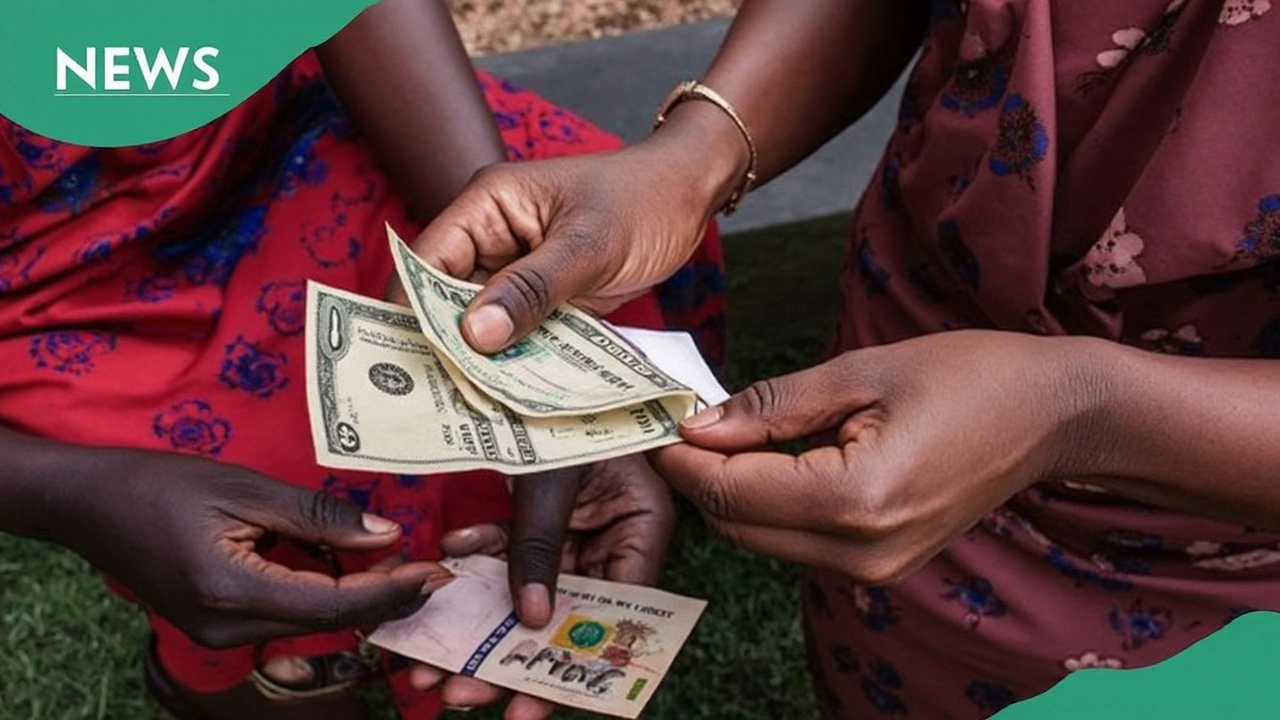- Indian Para-Athlete Preethi Pal Secures Historic Bronze in Women's T35 100m at Paris 2024 Paralympics Aug 31, 2024
- Zambia U‑17 women drawn with Paraguay, Japan, NZ in World Cup Group F Oct 10, 2025
- Pakistan Triumphs Over Australia in Thrilling ODI Series Decider Nov 10, 2024
- Radhika Merchant and Anant Ambani's Lavish Wedding Draws Global Spotlight Jul 13, 2024
- Jose Mourinho Unveils Strategic Transfer Targets as New Fenerbahce Manager Jun 3, 2024
Naira Depreciation: What It Means for Your Wallet
The naira has been losing value against major currencies, and that changes prices, salaries, and savings fast. If you buy imported goods, pay school fees in dollars, or send money abroad, you already feel it. This page explains why the naira falls, how it affects everyday life, and simple steps you can take right now to protect your money.
Why the naira is falling
Several clear reasons drive depreciation. Nigeria depends on oil for foreign earnings; when oil prices drop or production stalls, supply of dollars tightens. The central bank's policies, like limits on forex access or rate controls, can push demand to the black market and widen the gap between official and parallel rates. High inflation and weaker investor confidence make foreign investors pull money out, putting further pressure on the currency.
Immediate effects you see
Prices of imported goods go up — think fuel, electronics, medicines, and some school supplies. Airlines and international schools adjust fees. Businesses facing higher import costs often pass them to consumers, raising inflation. Small savers lose buying power if wages don’t keep pace. For firms with foreign debts, repayments suddenly get costlier, raising the chance of layoffs or price hikes.
Remittances usually help, but when transfers come in at a weaker naira, families may still struggle to cover costs. Travel becomes more expensive, since converting naira yields fewer dollars. If you’re a freelancer paid in foreign currency, a falling naira can feel like a pay raise — but that benefit is uneven and unstable.
So what can you do right now? Start with small, practical moves. Cut or delay non-essential imported purchases. Shift some savings into stable assets you understand — short-term foreign currency accounts if available, hard assets like gold or usable goods, or local instruments that offer inflation-beating returns. Avoid hoarding cash; inflation erodes value quickly.
For businesses, renegotiate supplier terms, look for local alternatives, and hedge foreign commitments where possible. Use forward contracts or ask for partial payments in naira to share forex risk. Track both official and parallel exchange rates; that helps you time major transactions.
Keep an eye on policy signals. Central bank rate moves, oil export data, and foreign reserve levels often predict currency swings. Trusted news sources, bank advisories, and market reports matter more than social media hot takes. If you need expert help, talk to your bank or a licensed forex adviser before making big currency moves.
Look for practical tools: mobile forex apps, central bank updates, and price trackers for staple goods. Track fuel and food prices weekly and set a small emergency fund that equals at least one month of expenses. If you have loans, speak to lenders about flexible terms. Simple planning often beats panic when the naira swings with discipline.
It’s stressful when the naira drops, but acting early helps. Small steps — spending smart, protecting savings, and staying informed — reduce the shock and keep your finances steadier while the market settles.
Naira Plummets Past N1,500: Official and Black Market Rates Signal Growing Exchange Rate Tension
- Katlego Sean Mahaye
- Jun 4, 2025
The naira’s official rate has jumped to ₦1,581.58 per dollar, with black market rates soaring past ₦1,615. The widening gulf between official and parallel markets reflects deepening foreign exchange struggles for Nigeria, driven by liquidity shortages, speculative trading, and economic uncertainty.
